last modified: 2023-05-15

1. From segmentation to personalization
Segmentation helps refine the picture from a mass of data to meaningful subgroups of data points.
Why not go down to extreme segmentation: segments the size of an individual?
-
Major websites do it (Amazon, Yahoo!, Netflix, etc.)
-
Ads providers do it (Facebook)
-
News feed do it (Prismatic, Pulse)
Advantages: pinpoint accuracy and relevance Inconvenient: operational complexity
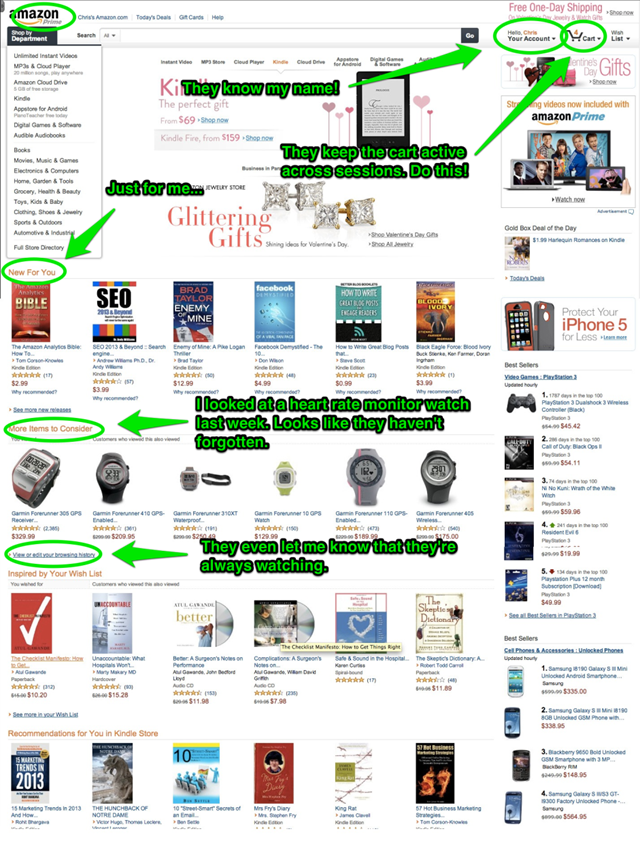
2. Beyond behavior: tracking individual bodies
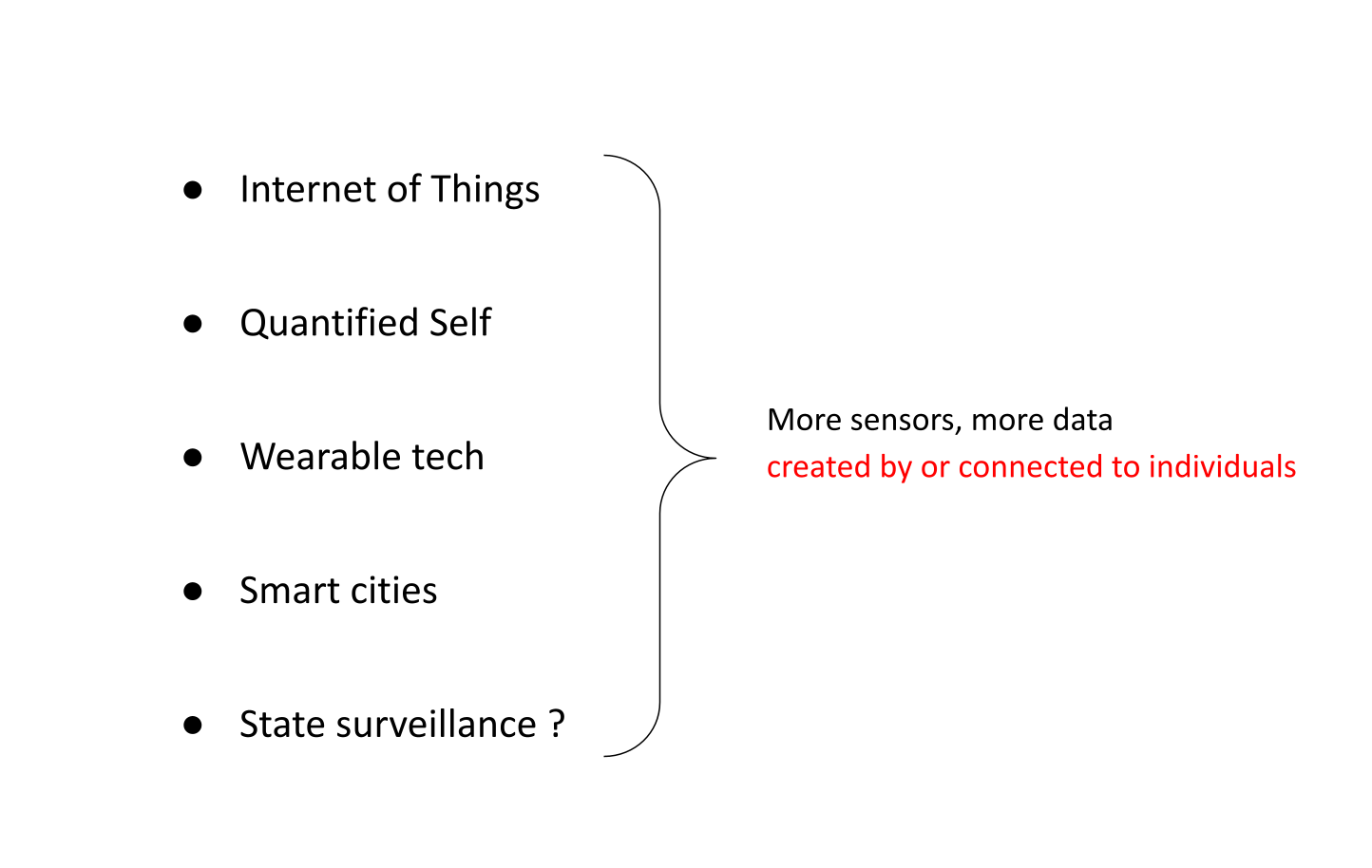
A list of bodily aspects being measured with examples:
| Bodily Measurement | Device | Company | Product | Location |
|---|

| Bodily Measurement | Device | Company | Product | Movement |
|---|
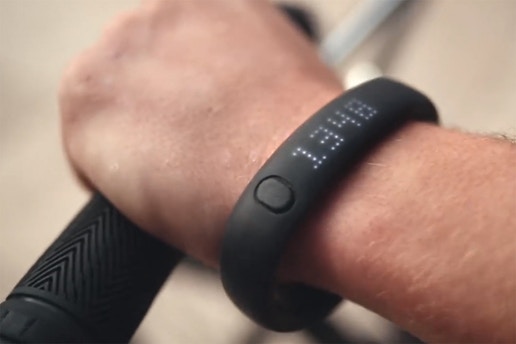
| Bodily Measurement | Device | Company | Product | Gestures |
|---|
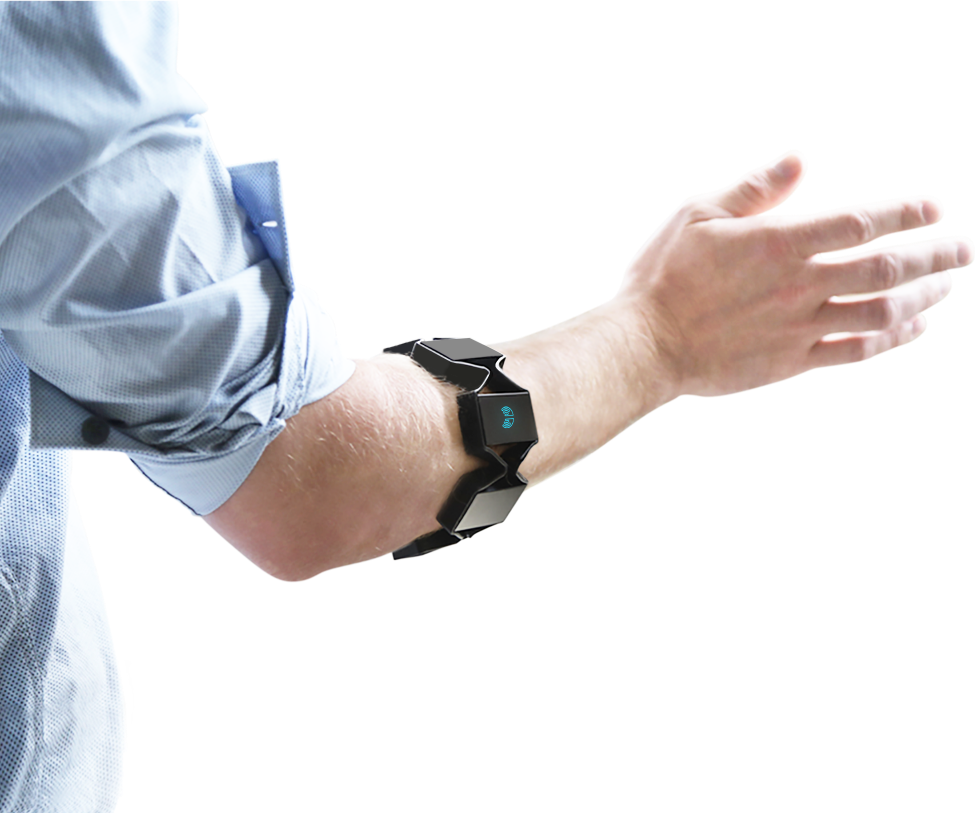
| Bodily Measurement | Device | Company | Product | Weight, heart rate |
|---|
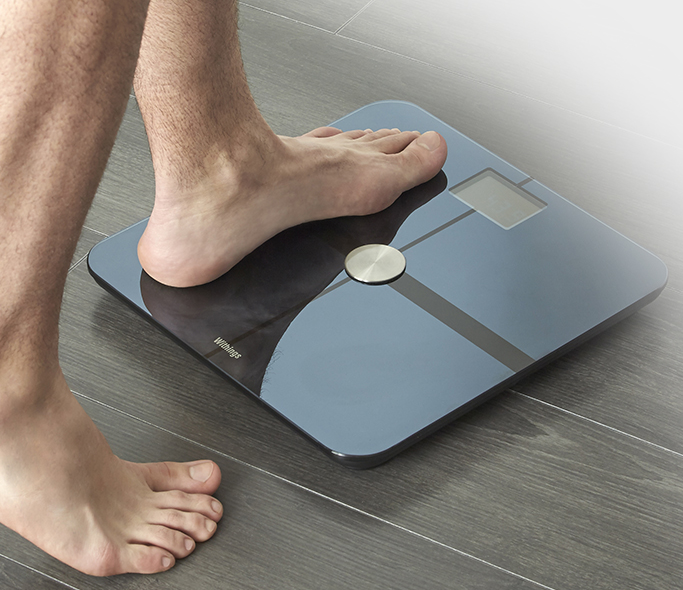
| Bodily Measurement | Device | Company | Product | Sleep |
|---|

| Bodily Measurement | Device | Company | Product | Fingerprint |
|---|

| Bodily Measurement | Device | Company | Product | Facial recognition |
|---|

| Bodily Measurement | Device | Company | Product | Emotions |
|---|
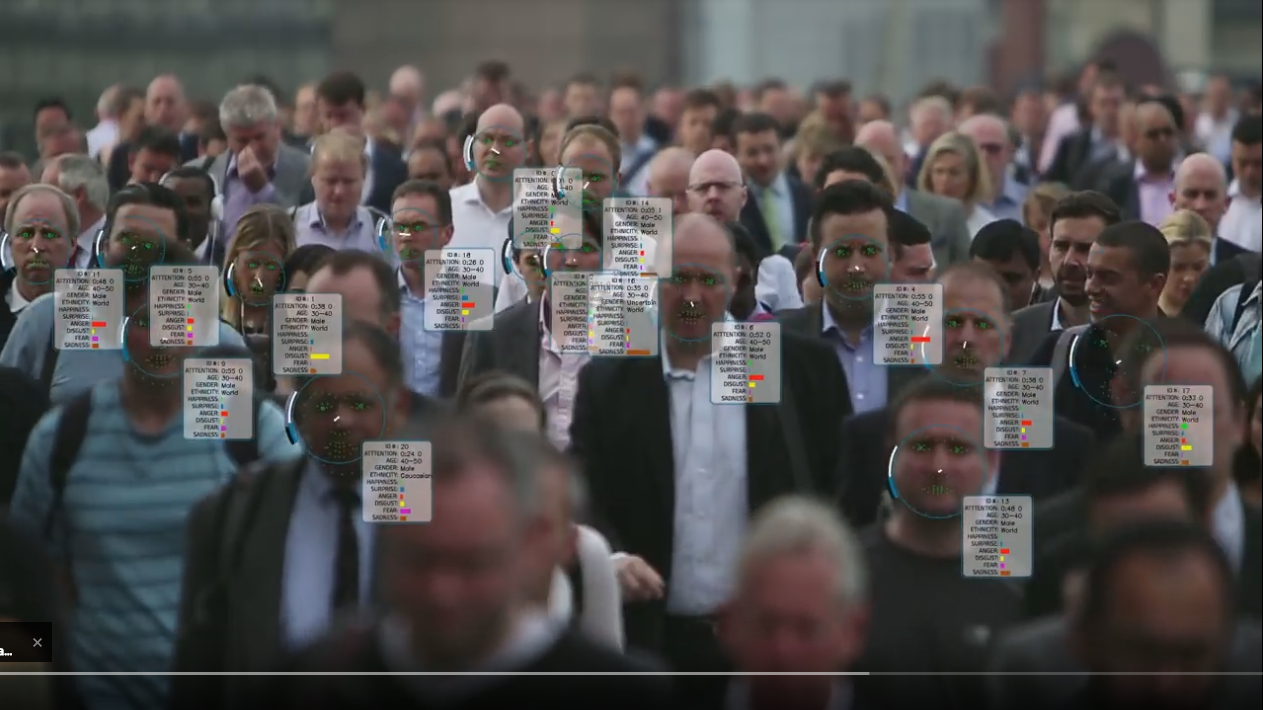
| Bodily Measurement | Device | Company | Product | Behavior in public areas |
|---|---|---|---|---|
Multiple devices |
AGT International |
Pedestrian traffic |
Cameras |
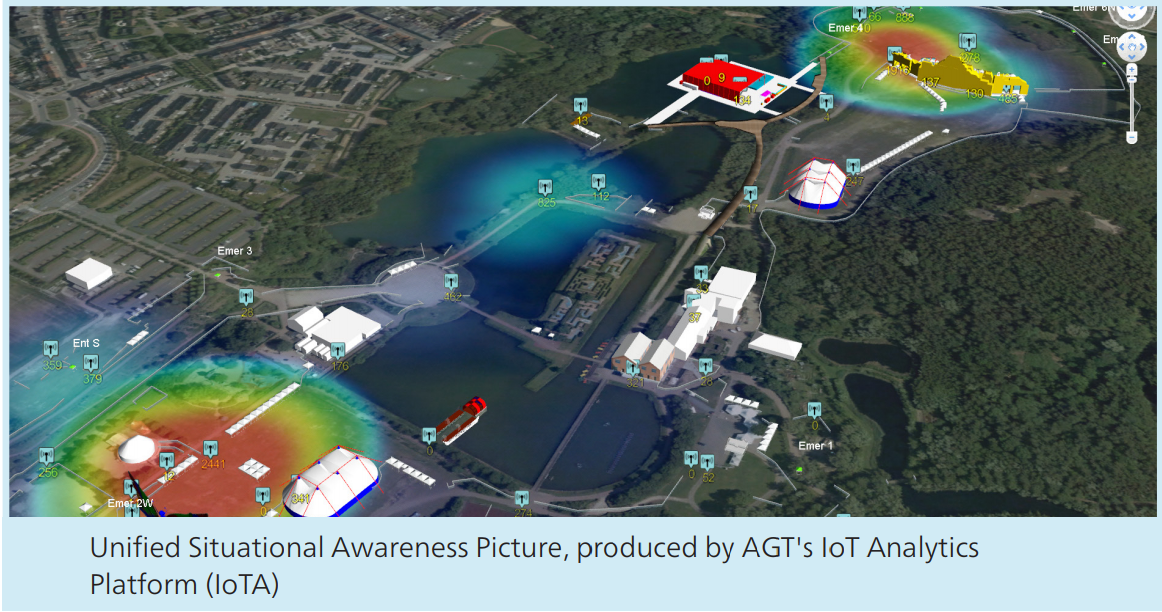
A description of how AGT monitors large audiences in public events (click on the pic for the full document):
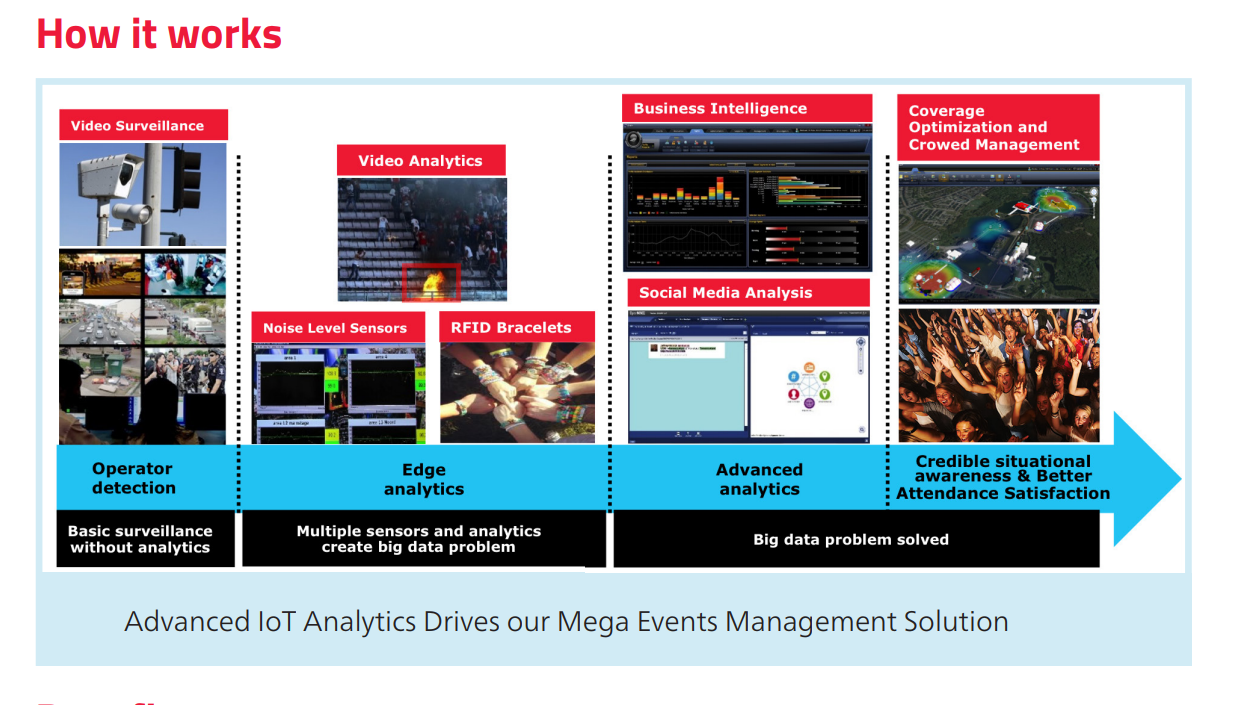
Video showing how Placemeter monitors pedestrian traffic:
3. The case of Nicholas Felton: constant data monitoring
a. The Feltron reports

Nicholas Felton is a designer and data artist who produced printed annual reports from 2005 to 2014.
These reports synthesize his bodily data and social life, which he measures constantly during the year. This practice (pushed to the extreme in this case) belongs to the quantified self movement.
b. Not just Feltron
Insurance companies are interested in boosting individual health, using connected objects as monitoring devices

Companies are looking to provide a 360 degree solution to health and well being through constant monitoring:
Monitoring on health is also a B2B market to achieve "corporate welfare". See Nokia’s brochure on the topic of health services.
4. Issues, limits
These technologies open a vast number of issues: from data privacy to the redefinition of well-being, and the grey boundary between monitoring and surveillance. A full session of this series is devoted to discussing these issues.
For the moment, let us just repeat cautionary remarks already mentioned in a different session:
a. "personalization" has been blamed for reinforcing "bubbles" or "tribes" views of the world
(paying version of the paper, free version here).
b. Personalizing the customer relationship, even when effective, is not inherently a good thing.
It has been shown that the Coca-Cola #ShareaCoke campaign is effective at making more children choose a soda with a label to their name, over a healthy drink (paying version of the study here, free version not available).
c. Does personalization always need technology?
Companies rated with the customer service do personalization differently: with humans.
See how Zappos offers a great service to their customers:
or see (in French) how Trainline makes its customers happy.
The end
Find references for this lesson, and other lessons, here.
 This course is made by Clement Levallois.
This course is made by Clement Levallois.
Discover my other courses in data / tech for business: https://www.clementlevallois.net
Or get in touch via Twitter: @seinecle